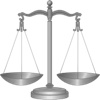A federal appeals court has refused to re-examine Samsung’s appeal of a 2012 jury verdict that found the company violated Apple’s iPhone patents, reports the San Jose Mercury News (http://tinyurl.com/ota5wgt).
The U.S. Federal Circuit Court of Appeals rejected Samsung’s bid to reconsider a previous ruling. This leaves the U.S. Supreme Court as the only legal option left for Samsung to try to overturn hundreds of millions of dollars in damages it now owes Apple.
Samsung had urged the Federal Circuit to rehear the case with its full 12-judge roster, arguing that a three-judge panel erred earlier this year when it left intact a jury’s verdict that the South Korean tech giant’s smartphones and tablets infringed on Apple’s design patents.
In May the U.S. Court of Appeals for the Federal Circuit adjusted Samsung’s US$930 million penalty, related to its patent infringement suit with Apple. The appeals court decision removed $382 million in damages, but $548 million still remained. Samsung is now challenging $399 million of the balance, which is an award of its entire profits from products found to infringe Apple’s design patents, according to a Samsung filing Wednesday in the appeals court.
The court affirmed a jury’s verdict finding that Samsung violated Apple’s design and utility patents. However, the appeals court also ruled that Samsung did not infringe on Apple’s trade dress, and overturned the jury’s findings on that issue.
This is all part of an ongoing, global legal battle. Apple and Samsung had filed more than 30 lawsuits against each other across four continents. For example,
Apple alleges that Samsung copied the slide-to-unlock technology of its iPhone and iPad devices. On May 14, 2014, an U.S. appeals court affirmed a decision by the U.S. International Trade Commission (ITC) that Apple is innocent of violating three patents owned by Samsung. Earlier that month, a jury handed back a verdict in the latest Apple-Samsung legal battle over patent infringement.

